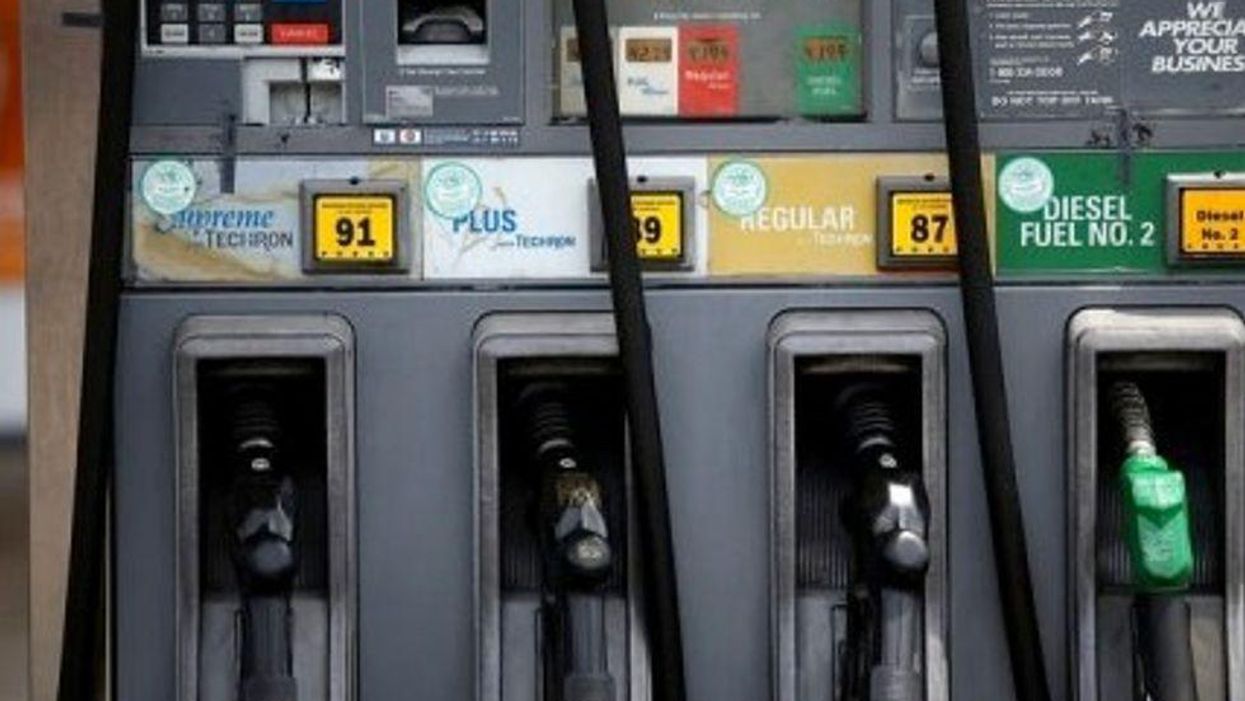
In the annals of American economic policy, the year 2020 will be remembered as a remarkable success. That may sound odd, considering that the economy suffered a seizure that caused unemployment to quadruple almost overnight. But sometimes success is measured less by what is achieved than by what is avoided.
In this case, we avoided a catastrophic collapse that would have caused more misery and hardship than Americans have endured since the Great Depression. The worst pandemic in a century appeared out of nowhere, and economic activity suddenly came to a halt. We were sliding toward a deep, dark abyss.
Today, Americans have worries of a different kind, notably a jump in the inflation rate. In October, the Consumer Price Index was up by 6.2 percent from a year earlier. Republicans have raised the specter of runaway inflation and put the blame on President Joe Biden and his party.
"Why is inflation here?" asked House Minority Leader Kevin McCarthy. "Because of the spending of what the Democrats have done. The trillions of dollars." Senate Minority Leader Mitch McConnell said, "It's a direct result of flooding the country with money."There is a kernel of truth in what they say. The federal government did flood the country with money last year — sending three sets of direct stimulus payments to citizens. But lest we forget, Biden was not president last year. Donald Trump was.
The Senate, controlled by the GOP, approved those payments as well as a boxcar load of other expenditures. The first relief measure, passed in March, amounted to a staggering $2.2 trillion. Trump signed another $900 billion package in his final weeks in office.
Those outlays kept millions of Americans from missing meals, losing homes and going bankrupt. But much of the money wasn't spent, because the pandemic kept people out of stores, restaurants, hotels and airports. Much of the money went to build up savings and pay down debt.
As a result, many of us are in a far better position to make purchases now that life has regained a semblance of normality. It's no surprise that prices are higher now than a year before — when vaccines were not available and people were hunkering down to avoid infection. Last year, low demand kept prices down. Today, growing demand is pushing them up.
A jump in prices, however, doesn't mean inflation is here to stay. The October increase was the biggest since 1991. Anyone remember the Great Inflation of the '90s? No, because after the 1991 surge, inflation cooled.
In retrospect, the money delivered to Americans probably exceeded the need. But in 2020, it made sense to err on the side of doing too much. Any sane policymaker, given the choice between a far worse recession last year and higher inflation this year, would have gratefully accepted the latter.
Supply snafus, another product of COVID-19, are pushing prices up by limiting the supply of goods and services. Republicans blame Democrats, arguing that the stimulus checks and supplemental unemployment benefits have sapped many Americans of their willingness to work.
There is a kernel of truth in this argument, too. Unemployed people who are not destitute can afford to be choosier about jobs. But the extra unemployment payments ended, and the cutoff made no difference in labor force participation.
One major factor discouraging work is that the pandemic made many jobs a lot worse. Flight attendants, teachers, retail employees, restaurant servers and other workers who interact with lots of people now have to worry about COVID-19, as well as surly customers who reject vaccines and masks.
No surprise, then, that luring the unemployed back to work requires higher wages. But the pandemic will subside, and when it does, those jobs will look more appealing.
Biden's critics claim that his infrastructure and social spending packages will feed inflation. But those outlays will be spread out over 10 years, unlike last year's pandemic relief. They will also be largely paid for with tax increases, canceling any stimulative effect.
Lately, Americans are feeling the after-effects of last year's public health crisis and the measures taken to address it. The recent inflation spike is one of them. But the pandemic will subside, and as it does, the after-effects will diminish as well.
The economy is not in perfect condition right now. But recalling the potential apocalypse that loomed in March 2020, we should not forget how far we've come.
Follow Steve Chapman on Twitter @SteveChapman13 or at https://www.facebook.com/stevechapman13. To find out more about Steve Chapman and read features by other Creators Syndicate writers and cartoonists, visit the Creators Syndicate website at www.creators.com.
- New Data: Rich Got Richer, But Most Americans Fared Worse Under ... ›
- Despite Dismal Polls, Biden Economic Program Is 'A Smashing ... ›
- Federal Reserve Expected To Maintain Low Rates Despite Rising ... ›
- Biden Urges Federal Trade Commission To Probe High Gas Prices - National Memo ›
- What rising Inflation rates mean for the economy and prices of ... ›
- How to save money as inflation and consumer prices rise - The ... ›
- Surging Inflation Poses New Challenge to Biden's $2 Trillion ... ›
- Biden's top economic adviser urges passage of economic bill to ... ›
- Why Is Inflation Rising Right Now? – Forbes Advisor ›








